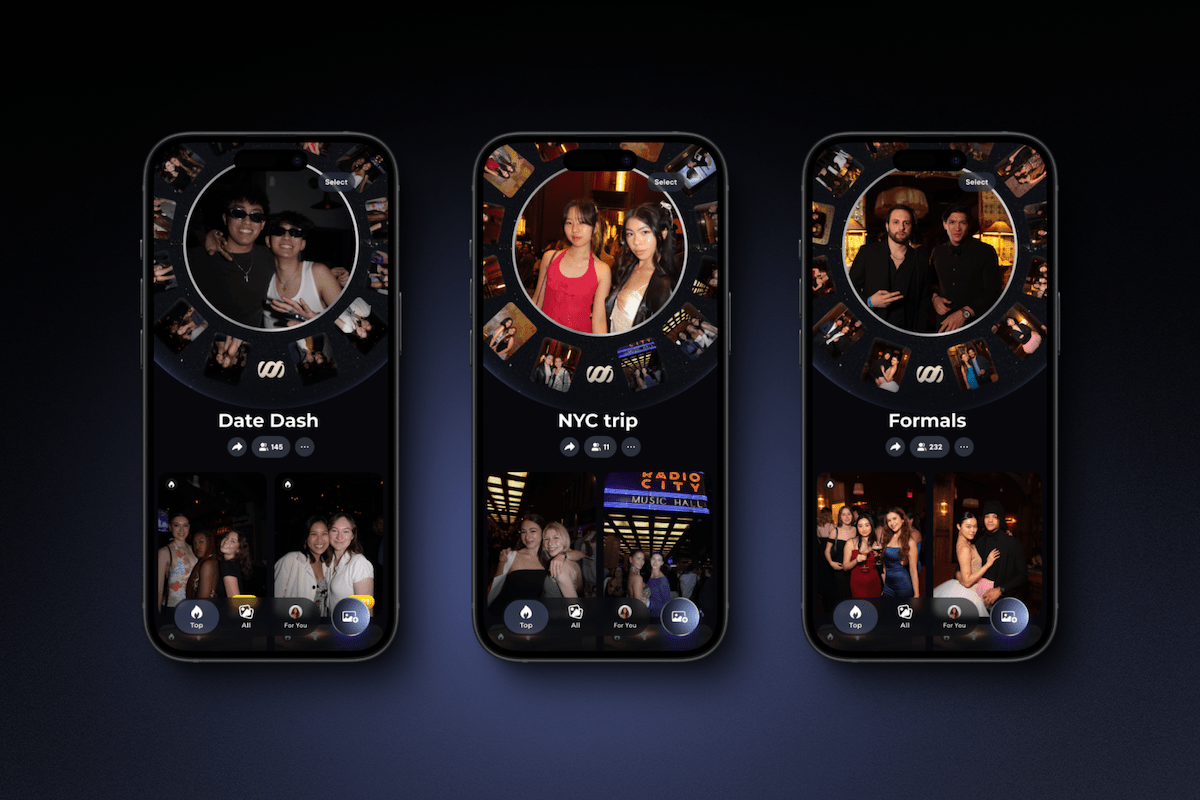When Swsh launched last year, the social app was initially designed as a poll game (similar to the “Most Likely To” game), where users can answer five daily questions with their friends.
However, the company has completely switched gears, joining a very crowded market — photo album-sharing platforms. These types of apps have existed for a little over a decade, with newer rivals including Dispo, Lapse, Sunshine, and others. But Swsh believes it can stand out by offering Gen Z-focused features.
The first feature that sticks out is the ability to filter out alcoholic beverages and solo cups, making it a useful tool for young users (especially high school and college students) wanting to maintain a squeaky-clean image on their social media accounts. Another feature is the ability to hide certain photos. For example, if someone appears visibly intoxicated at a party or has their eyes closed, they can request to hide the photo.
Additionally, the app’s AI facial recognition tool allows users to search for photos of themselves in a sea of images. Users have to opt into the function, and hosts can also restrict access so users can only see photos of themselves.
The app recently introduced a tagging feature, allowing users to assign names to faces for easy searching. So, if a user can’t remember the name of someone who was at an event and wants to reconnect, they can simply look through the tagged names to find them. Users have individual profiles and can also create collaborative groups with all their friends.
It’s a strategic decision for Swsh to focus on targeting Gen Z, the demographic that has grown up sharing their lives online. The app also aims to tailor itself to college fraternities and sororities, assisting presidents in managing numerous events and the large volume of photos taken during these events.
In fact, the brains behind Swsh are Gen Zers themselves – Alexandra Debow (CEO), Nathan Ahn (CTO), and Weilyn Chong (COO) – so they understand the target audience well.
“We would always be asked after parties, ‘Hey, can you send the photos of me? And also, who was that cute guy?’” Debow told TechCrunch. “After every social engagement, there’s always a transaction… ‘Send me the photos.’ That is an exchange that happens. It’s this social contract thing.”
“I realized there was this strong [need] to create the best-shared photo album,” she added.
Next, Swsh plans to launch customized albums so users can add different themes for special celebrations, holidays, and concerts. There will also be “Recaps,” a collection of photos at the top of the page for users to reminisce on past events. These features will roll out later this fall.

Swsh relaunched its app in February and still has a long way to go before meeting the same level of popularity as its competitors. According to Sensor Tower estimates, the app only has around 3,093 installs. Swsh says the number of users is growing 47% month to month.
Despite the slow growth, a notable group of investors have backed the app, indicating a belief that Swsh has a promising future and can perform well among younger users.
The most recent round provided the company with $700,000 in new capital, which was led by BoxGroup with participation from Alexandra Burbey (Sound Ventures investor), Amy Moussavi (former Apple employee), David Rosenberg, Krish Jayaram (ex-director of product at Snap), and Sergei Sorokin (former VP of product at Discord), among others.
The company has raised $2.4 million to date.

